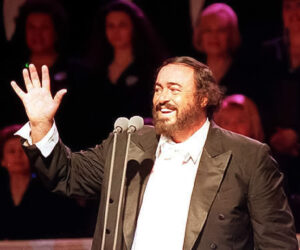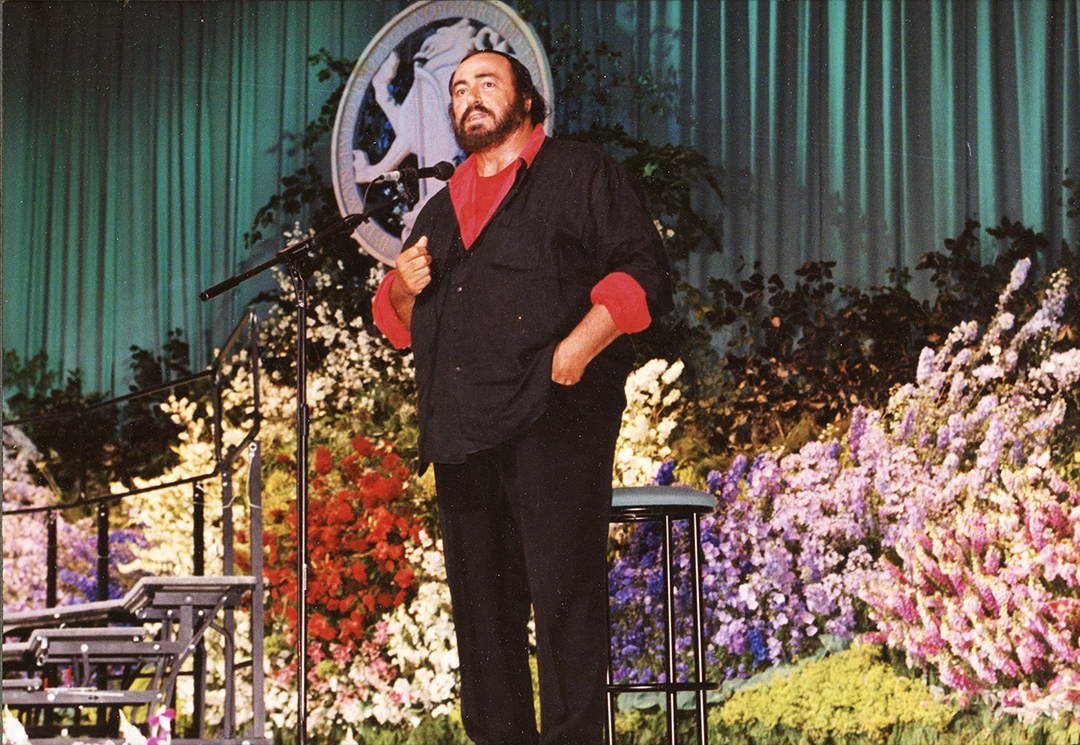For many supporters and commentators, Pavarotti’s concert on 9th July 1995 is unquestioningly the high point in the Eisteddfod’s long history, in their view unsurpassed both in the artistry and emotion of the event and the impact and glory for the Eisteddfod.
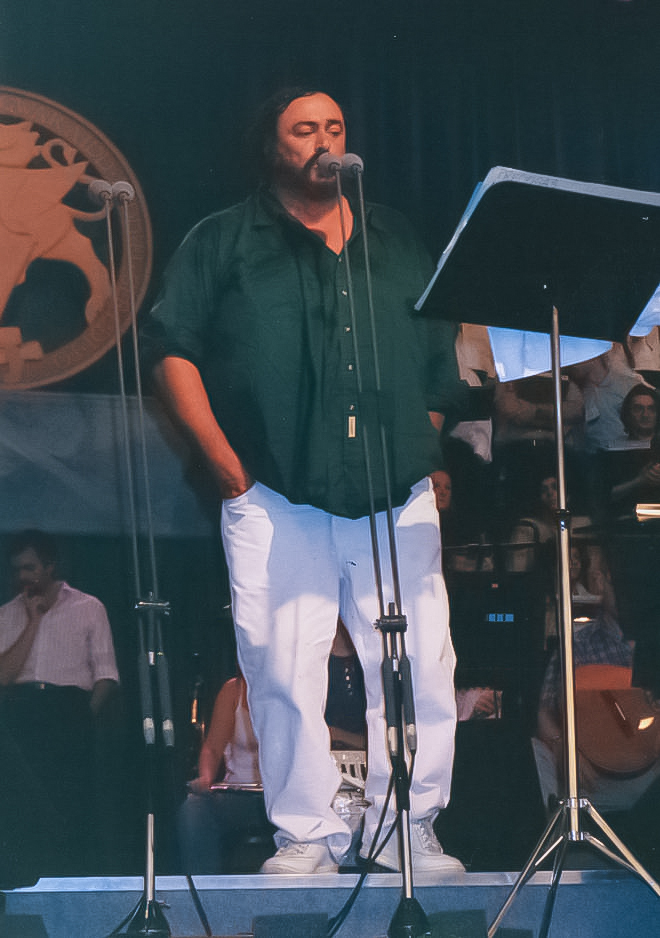
Luciano Pavarotti sang in Llangollen on two occasions. In July 1955, aged 19, he joined his father in a choir from Modena, Societa Chorale” G. Rossini”; under conductor signor Livio Borri they won the male voice competition by a distance. Forty years later, in 1995, he returned to give a special concert in the Pavilion during Eisteddfod week. Another concert was planned in 2003 for the Saturday before the Eisteddfod, but was cancelled less than a month before the scheduled date due to the singer’s ill health.
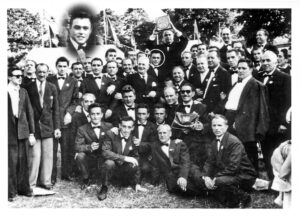 The experience of Llangollen in 1955 clearly made a big impression on the young man, (photo above) then training to be a teacher. “It made me decide to take up a musical career” he said, and frequently expressed his fondness for the festival and for the town, his memories leavened by emotions about his family: he refers to the choir from Modena as “my father’s choir”.
The experience of Llangollen in 1955 clearly made a big impression on the young man, (photo above) then training to be a teacher. “It made me decide to take up a musical career” he said, and frequently expressed his fondness for the festival and for the town, his memories leavened by emotions about his family: he refers to the choir from Modena as “my father’s choir”.
In London in 1991 for a famous concert in Hyde Park, he made a radio broadcast which included his opinion of the Eisteddfod and its high standards, and his recollections of his tenseness during the announcement of the adjudication and scores: the marquee set in rolling green hills; the sea of faces watching, the intense and appraising listening as the choirs sang, the thunderous applause, the way his spirit soared when the choir was awarded first prize. The Western Mail similarly reported the emotional prize-giving:

“There were amazing scenes when the G. Rossini Choral Society” from Modena in Northern Italy – 55 car factory workers, clerks and students (photo – above)– were named as winners of the male voice choir contest. The conductor signor Livio Borri, fainted, members wept and kissed each other, and against the Eisteddfod custom, crowded onto the stage for the presentation.”
The archive’s recordings include the choir’s 1955 test piece performances: “In Nomine Iesu” (Jacobus Handl) and “Bonjour, Mon Couer” (Orlando di Lasso) are available on the website. Later on the Saturday they performed two pieces in the concert –“Dolce Sera” (Vittore Veneziani) and “Bona Jesu” (G. P. da Palestrina); recordings of the concert are not currently available.
Several years of negotiation were actually required to bring Pavarotti back to Llangollen In 1995 the advance publicity came thick and fast, and seemed inexhaustible.
The visit started on Friday July 7, when Luciano and his 83-year-old father Fernando were joint Day Presidents, providing the opportunity for an informal appearance on stage. There was a long wait for the packed crowds who arrived early on the field. Pavarotti’s speech harked back to 1955:
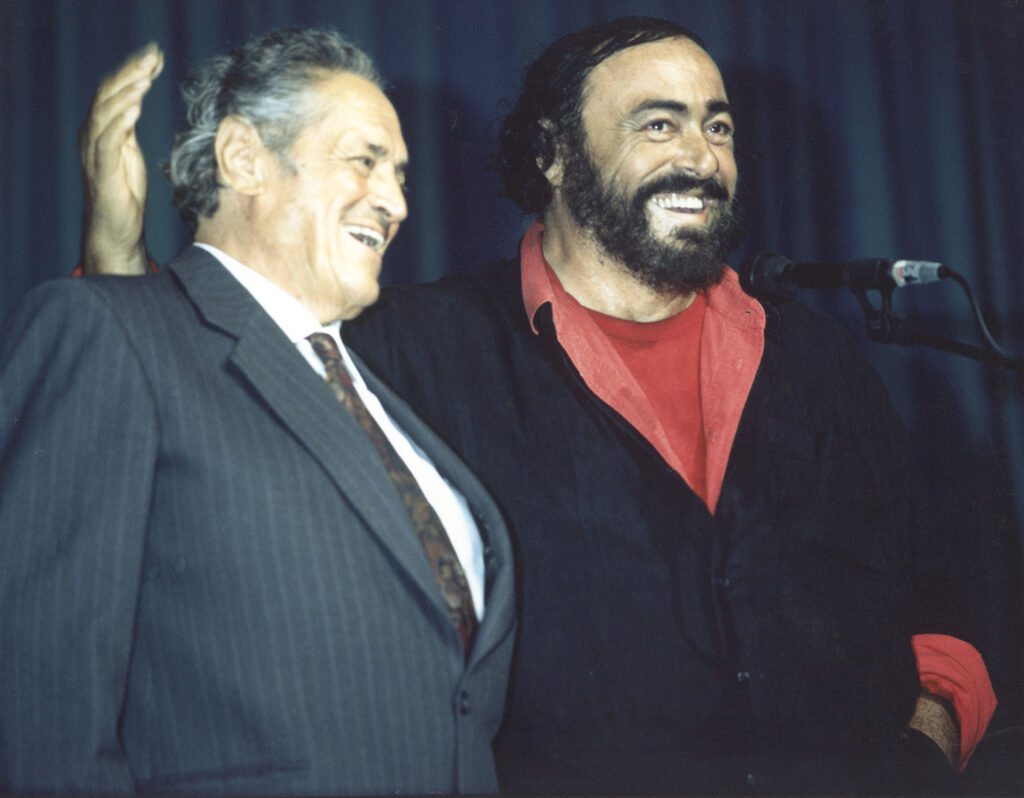
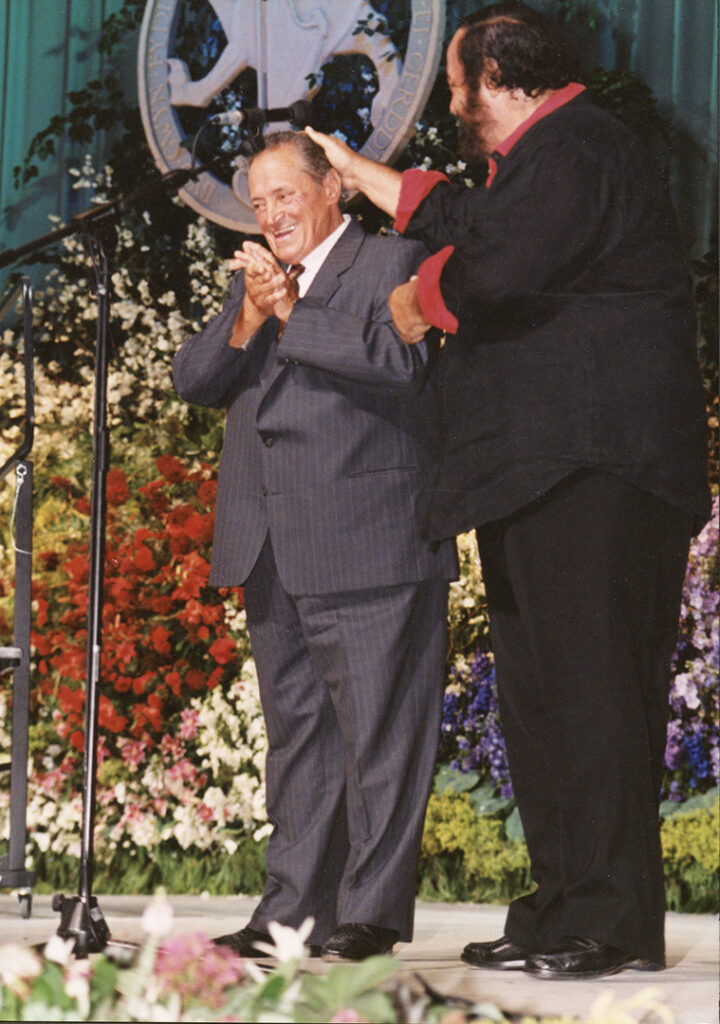
“40 years ago, my God it seems to be just yesterday for me. I have done so many things. I always say that to the journalists when they ask me what is a day more memorable in my life, and I always say that it is when I won this competition because it was with all my friends. With me at that time there was a person that I would like to have the privilege to introduce: my Father.” He went on “When we were here 40 years ago he was my father, now I think he’s my son!” referring to the difference in their waistlines.
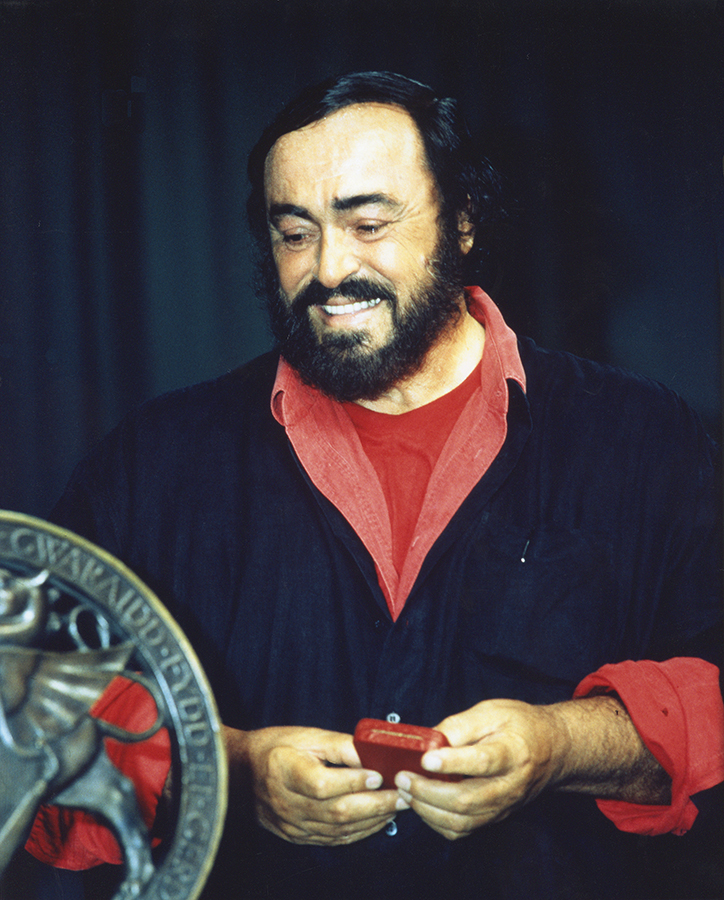
In the time before the Sunday concert, Pavarotti had the chance to meet Alice Griffiths from Froncycyllte; he had been one of four Modena choristers who had lodged with her in 1955. “I remember well the house I stayed in. All the way from Italy, I was exercising my English. But when we are brought to the house in Llangollen and meet the family, I understand not a word. I did not know there was such a language as Welsh.” They met at the Bryn Howell hotel, where Pavarotti and his entourage were staying.
The audience for the Sunday concert began building by mid-afternoon; hearing a rehearsal eased the wait but also stoked the agony of anticipation. Video recordings testify to the quality of the performances: Pavarotti himself, the BBC Philharmonic Orchestra and a chorus provided by Societa Chorale” G. Rossini clearly sing and play their hearts out; a surprise treat. 4500 fans packed the Pavilion; a surprise was soprano Atzuko Kawahara, who sang the duet from Verdi’s La Traviata with the Maestro as a final encore. The Pavilion itself was packed with 4500 seats; the field too, its audience of 3000 watching the concert on large screens; outside the perimeter of the Eisteddfod site, a non-paying crowd lined the canal towpath and the fields beyond, even up towards Dinas Brân; In Swansea an open-air audience of tens of thousands enjoyed a TV broadcast. Press and media coverage was huge. Beyond the appreciation of the music can be found a sense of awe that the most famous figure in European opera, then at the very peak of international repute, should repair to this small Welsh town with its unique Eisteddfod.
That memorable concert still influences the Eisteddfod. The competitors in the annual Choir of the World competition, is aptly named the Pavarotti trophy. Every Eisteddfod Saturday as the excited winning choir streams onto the stage to receive the award, we think of the 19-year-old student in 1955, and the future that awaited him.
